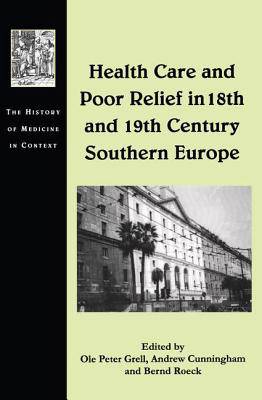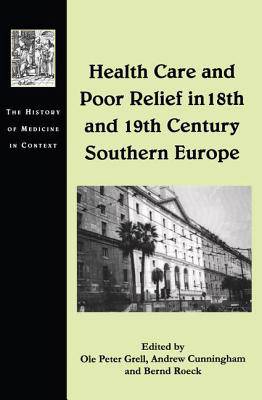
- Afhalen na 1 uur in een winkel met voorraad
- Gratis thuislevering in België vanaf € 30
- Ruim aanbod met 7 miljoen producten
- Afhalen na 1 uur in een winkel met voorraad
- Gratis thuislevering in België vanaf € 30
- Ruim aanbod met 7 miljoen producten
Zoeken
Health Care and Poor Relief in 18th and 19th Century Southern Europe
Ole Peter Grell
€ 305,45
+ 610 punten
Omschrijving
In this volume, various aspects of Southern European health care and poor relief are examined. Issues of charity and medicine are discussed both in their national and wider European context. By studying the crucial transitional period between the parish relief of the late medieval world and the state sponsored provision of the twentieth century much can be learned about how attitudes to the poor and sick changed over time and place.
Specificaties
Betrokkenen
- Auteur(s):
- Uitgeverij:
Inhoud
- Aantal bladzijden:
- 334
- Taal:
- Engels
- Reeks:
Eigenschappen
- Productcode (EAN):
- 9780754651567
- Verschijningsdatum:
- 22/06/2005
- Uitvoering:
- Hardcover
- Formaat:
- Genaaid
- Afmetingen:
- 156 mm x 234 mm
- Gewicht:
- 644 g

Alleen bij Standaard Boekhandel
+ 610 punten op je klantenkaart van Standaard Boekhandel
Beoordelingen
We publiceren alleen reviews die voldoen aan de voorwaarden voor reviews. Bekijk onze voorwaarden voor reviews.








